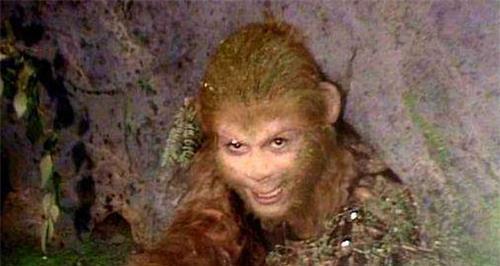In the novel, Sun Wukong, who changed seventy-two times and entered the heavens and the earth, was pressed at the bottom of the Five Elements Mountain by the Buddha of Rulai for more than 500 years, until the Tang monks appeared, and only left the Five Elements Mountain; during the Ming Dynasty, there was a live-action version of "Sun Wukong", who was buried alive by the emperor for seven days without dying, is it providence or coincidence? Who is he?

Chen Chen, born in 1376, Zi Kezhong, a native of Panyu County, Guangzhou Province, Guangdong Province, was brilliant from an early age, recommended by the local government to Study in Taixue, Yongle eight years (1410), Chen Chen served in the Criminal Division (from Qipin), co-in in the affairs of the department, Chen Chen was serious, his personality was straight, half of the people above the imperial court appreciated Chen Chen, and half of them were very bored with Chen Chen, because the inevitable Chen Chen would not let them be lazy and perfunctory.
Chen Chen also has a special way of doing things, that is, every time he goes to the court, he will use a particularly loud voice to state things to the emperor, his voice echoes in the court for a long time, known as "loud talent", and he is not afraid of the emperor, dare to speak out, although the courtiers are loyal to the emperor, loyal to the Ming Dynasty, and the advice can allow the emperor to better manage the country, but the emperor is not willing to listen to the words of the ear.
Therefore, once Chen Chen played things loudly in the court, Ming Chengzu Zhu Di ordered that Chen Chen's kan (kǎnyì) be sent to the Heavenly Gate, leaving chen Chen's head exposed and not allowing Chen Chen to eat, which was a very torturous punishment, and as a result, Chen Chen was left for a whole 7 days, and he did not lose his life.
Some ministers pitied Chen Chen's suffering, and seeing that Chen Chen was so tenacious, he said good things to Ming Chengzu, Chen Chen could survive, and Ming Chengzu also felt incredible, thinking that Chen Chen's life should not be extinguished, so Chen Chen was released, and the official was reinstated, but his voice was still so loud, and he did not fear the emperor because of this.
So Chen Chen offended Ming Chengzu again, was punished to build an elephant house, Chen Chen was a clean official, the family was not very rich, there was no money to hire others to work, he could only do it himself, Chen Chen was a scholar, now doing physical work, the appearance is very different from the past, one day Ming Chengzu from here, met Chen Chen, he couldn't recognize it, and asked who it was.
Chen Chen told Ming Chengzu as it was, and Ming Chengzu felt pity for him, so he reinstated Chen Chenguan and promoted Chen Chen, and later Chen Chenguan was promoted to Yin of Shuntianfu, and then successively served as Huguang's envoy and Shanxi's envoy (正三品), but Chen Chen still offended people and was sent to a small place.
In 1424, Emperor Akihito ascended the throne as emperor and granted amnesty to the world, and Chen Chen was supposed to be reinstated as an official, but Emperor Akihito thought that Chen Chen had acted sharply in the past and did not want Chen Chen to point out his mistakes in the future, so Chen Chen did not return to the capital and was demoted to Haiyan Zhi County (正七品).
However, Chen Chen was still as always, serious about things, very loved by the people, and later went to the palace to serve as Changshi (Zheng Wupin), Xuande for three years (1428), Chen Chen served as Zhenjiang Tongzhi (from Si pin), and then retired in this position, in 1444, the 68-year-old Chen Chen died in his home.